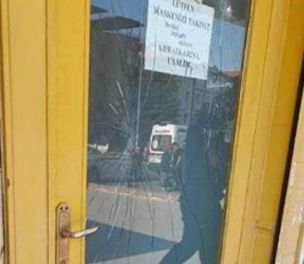Largest attacks on Türkiye's Alevis in decades raise concerns

Several Alevi places of worship and associations in the capital of Ankara were targeted in back-to-back attacks on Saturday (July 30), the first day of the Alevis' holy month of Muharram.
A woman was hospitalized after being stabbed in the attack on the Turkmen Alevi Bektashi Foundation, which is located in the government quarter of Kızılay.
The attack on the Şah-ı Merdan Cemevi in the Mamak district was carried out during cem, an Alevi religious ritual. The man who stormed the cemevi reportedly scattered the things around and threw a chair at the dede, the Alevi cleric. One person was injured in the attack.
The police later nabbed a suspect identified with the initials A.O.K., who also carried out the attacks on two other cemevis in the Mamak and Çankaya districts, Minister of Interior Süleyman Soylu announced yesterday.
The Serçeşme Cemevi in Batıkent, the Pir Sultan Cemevi in Oran, Çankara, the Ana Fatma Cemevi in Tuzluçayır, Mamak, and the Gökçebel Village Association were the other places targeted in the attacks.
Alevis are a formally unrecognized religious minority in Türkiye who were subjected to atrocities in recent history, most notably the 1978 Maraş Massacre, the 1980 Çorum Massacre, the 1993 Sivas Massacre and the 1996 Gazi Massacre.
Estimates of the Alevis' share in Türkiye's population vary between 10 and 20 percent.
Alevi places of worship and homes are still sporadically attacked in various parts of the country, mostly by marking buildings with "X." In a parliamentary question last year, an MP for the Peoples' Democratic Party (HDP) noted that 38 similar incidents took place in the country in a decade.
Joint statement from Alevi groups
Following the attacks, members of Alevi organizations gathered in several cities around the country, including Ankara, İstanbul, İzmir, Diyarbakır, Dersim and İzmir, to denounce the attacks.
All the groups read out a joint statement that said the purpose of the attacks was to "create an environment of chaos and conflict in the country."
"We are also aware of the language of violence adopted by the state and the AKP [Justice and Development Party] government, which paves the way for the shady forces that seek chaos and conflict ahead of the 2023 elections," said the statement.
The groups said they won't give up on the struggle for democracy, freedom and equality in the face of the attacks.
"We have stood against policies that polarize and otherize ... the people and we will continue to do so. We know the forces of the deep state that use hitmen and guided murderers to turn our country into bloodshed from Koçgiri, Dersim, Maraş, Çorum, Gazi, Gezi, October 1o, Suruç and dozens of similar massacres.
"However, we know very well while struggling for equal citizenship rights that we will never be free unless the peoples and religions in this country become free."
Reactions from politicians
Politicians from opposition parties also denounced the attacks, which they said were organized and premeditated.
MP Gamze Taşçıer of the main opposition Republican People's Party (CHP) visited the Turkmen Alevi Bektashi Foundation to express solidarity with the Alevis.
She called on Minister Soylu to find those who carried out the "provocative attack."
"This attack is an attack on our unity, solidarity and brotherhood, but no one should think that we will step back," she said.
Several other CHP deputies denounced the attack on Twitter.
"İYİ (Good) Party Chair Meral Akşener tweeted, "On this holy day when we entered the Muharram month, I strongly condemn the attack on a cemevi in Ankara."
Releasing a written statement, the HDP said the attack was "organized" and was caused by the government circles' discourse targeting the Alevis.
"These attacks are directly related to the ruling power's otherizing the Alevis and disregarding their faith," it said.
The Democracy and Progress (DEVA) Party and the Future (Gelecek) Party, two splinter movements from the ruling AKP, also denounced the attacks. (VK)




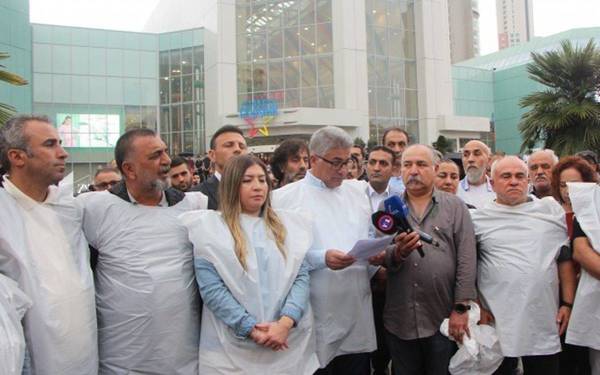
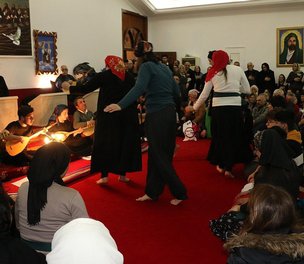
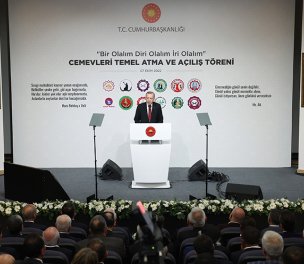
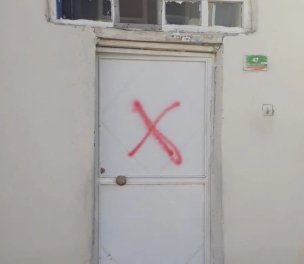
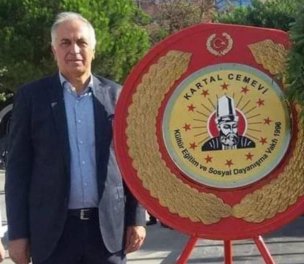
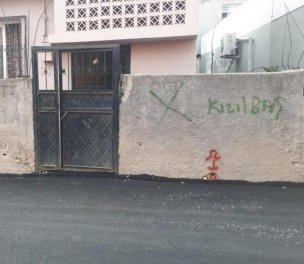
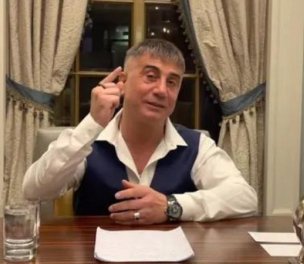
dasd.jpg)
